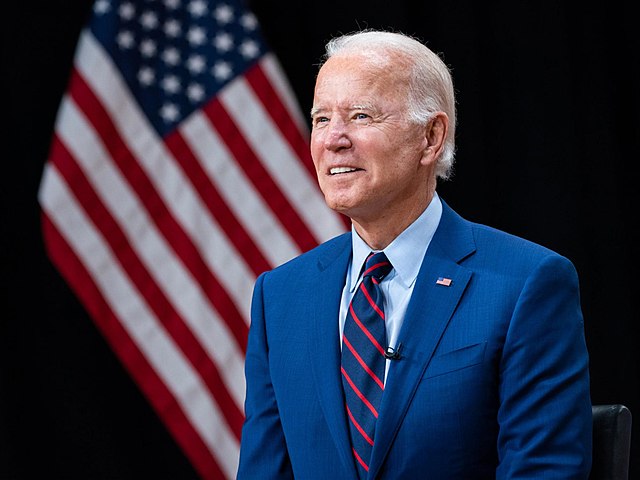President Joe Biden has re-proposed the controversial idea of using the 14th Amendment as a way to lift the borrowing cap without Congress’s approval. This comes as the debate over addressing the debt ceiling continues and the threat of default looms. Were Biden to invoke the 14th Amendment to allow the Treasury to borrow above the debt ceiling, it would almost certainly prompt swift legal action, a GOP backlash, and a constitutional crisis.
Some, including Laurence H. Tribe of Harvard Law School, point to Section 4 of the amendment as the basis of their argument that the president and the president alone has the constitutional authority to order the nation’s debts be paid, thus ignoring the debt limit (which is not mentioned in the Constitution).
“The validity of the public debt of the United States, authorized by law, including debts incurred for payment of pensions and bounties for services in suppressing insurrection or rebellion, shall not be questioned.” The “not be questioned” bit is the important part that would enable Biden to act. Garrett Epps, a constitutional law professor at the University of Oregon says that “the federal government is required to pay the debt on time in full.”
The President is by no means endorsing the move, but he has also not ruled it out.
“I’ll be very blunt with you, when we get by this, I’m thinking about taking a look at, months down the road, as to see whether what the court would say about whether or not it does work,” Biden said Tuesday of the option, after meeting with congressional leaders about the impasse. Barack Obama notably held a similar opinion but was quicker in abandoning the strategy.
Treasury Secretary Janet Yellen, who has warned lawmakers that the government may default on its obligations as soon as June 1st, also was hostile to the idea.
“There would clearly be litigation around that. It’s not a short-run solution,” Yellen said at a news conference Thursday. “It’s legally questionable whether or not that’s a viable strategy. There are choices to be made, if we got into that situation,” she said. “But as you think about each possible thing that we could do, the answer is there is no good alternative that will save us from catastrophe. The only reasonable thing is to raise the debt ceiling and to avoid the dreadful consequences that will come if we have to make those choices.”
Invoking the 14th Amendment would, perhaps most notably, open the door to future abuse of executive power should the move be upheld, said Philip Wallach, senior fellow at the right-leaning American Enterprise Institute.
“Every time you take these actions that empower the president at the expense of Congress and at the expense of the political process, you need to ask yourself, am I going to be happy about the consequences of this the next time, when the other side’s party is sitting in the White House?” Wallach said.
It would also not avoid threatening the safety of US Treasury securities as well as the nation generally, per former Treasury Secretary Jack Lew, who served in the Obama administration, said at a Council on Foreign Relations event last month.
“It was not meant to be a broad grant of power,” he said. “Whether you could come up with a theory that you could convince a court was legitimate, I think it’s just a risky thing to do.”












